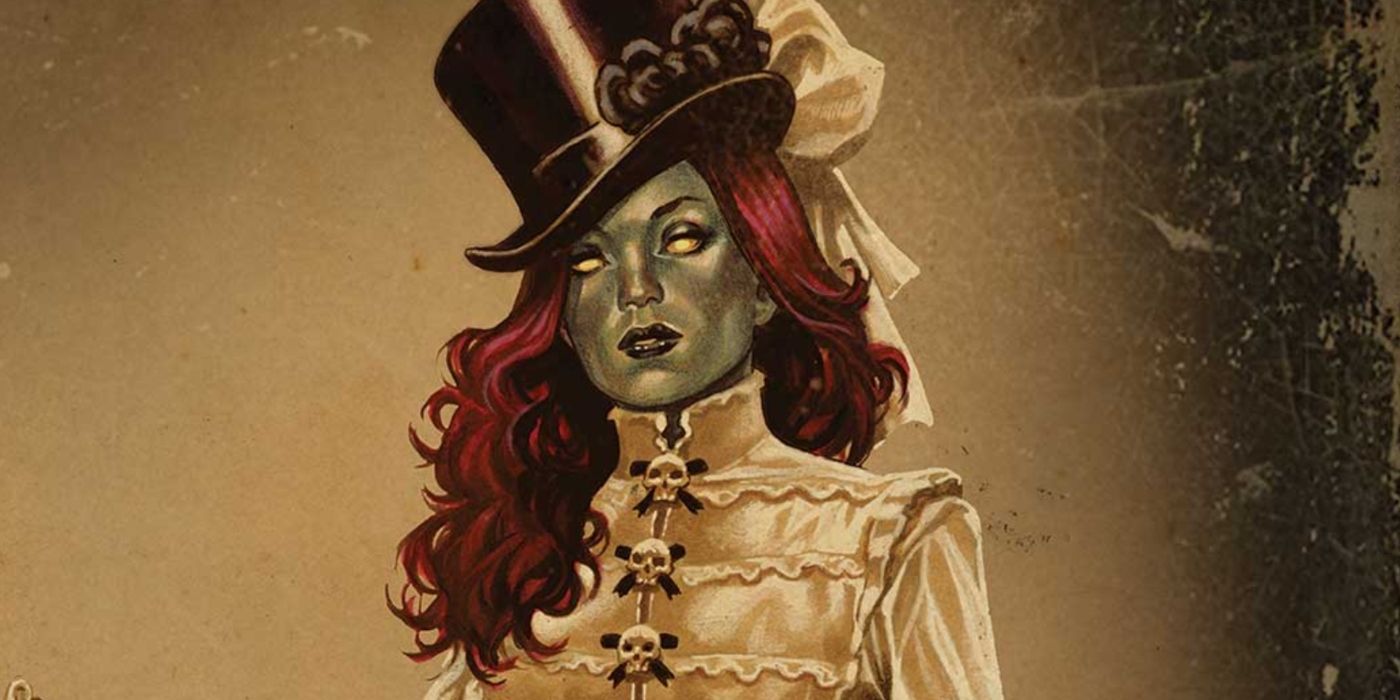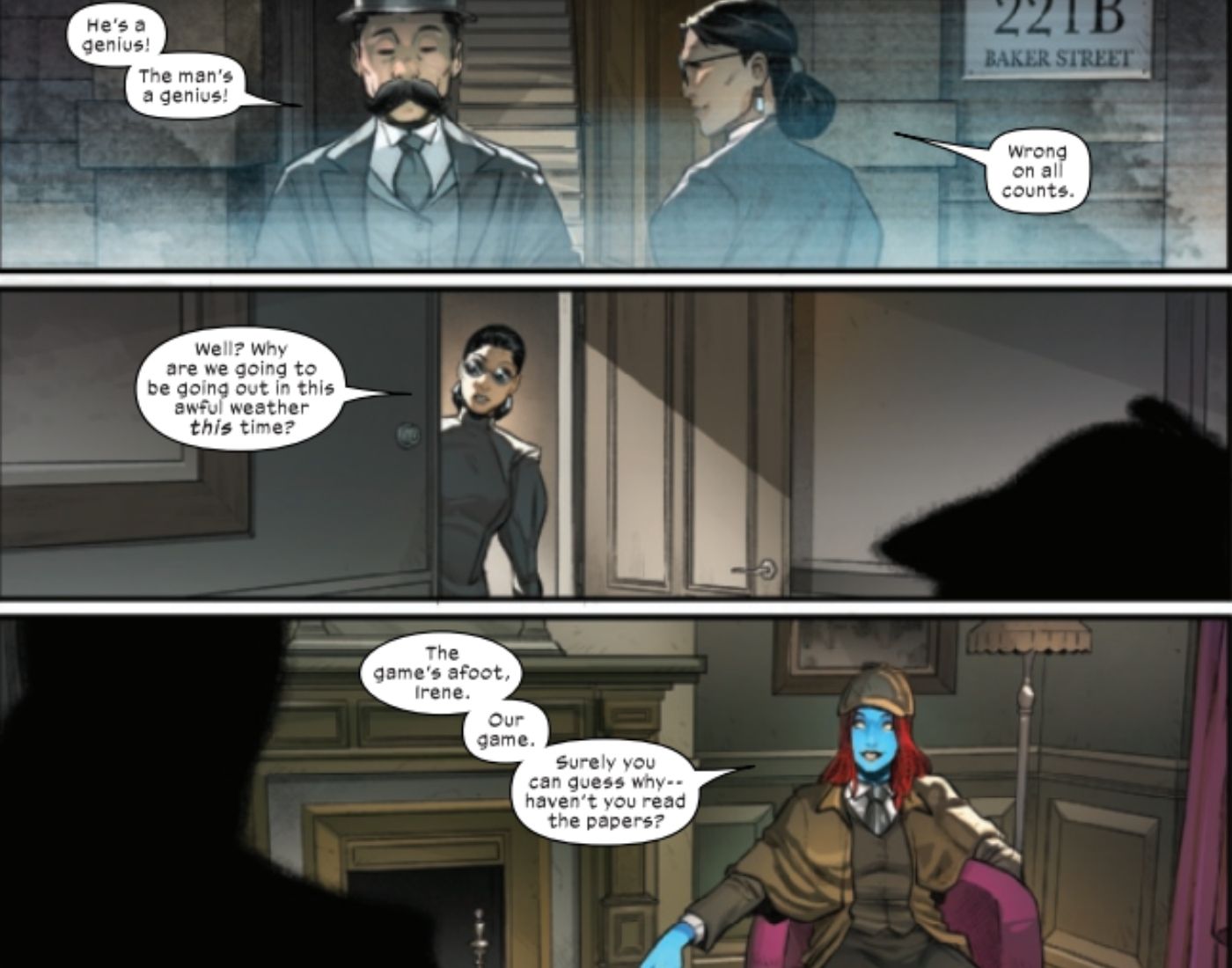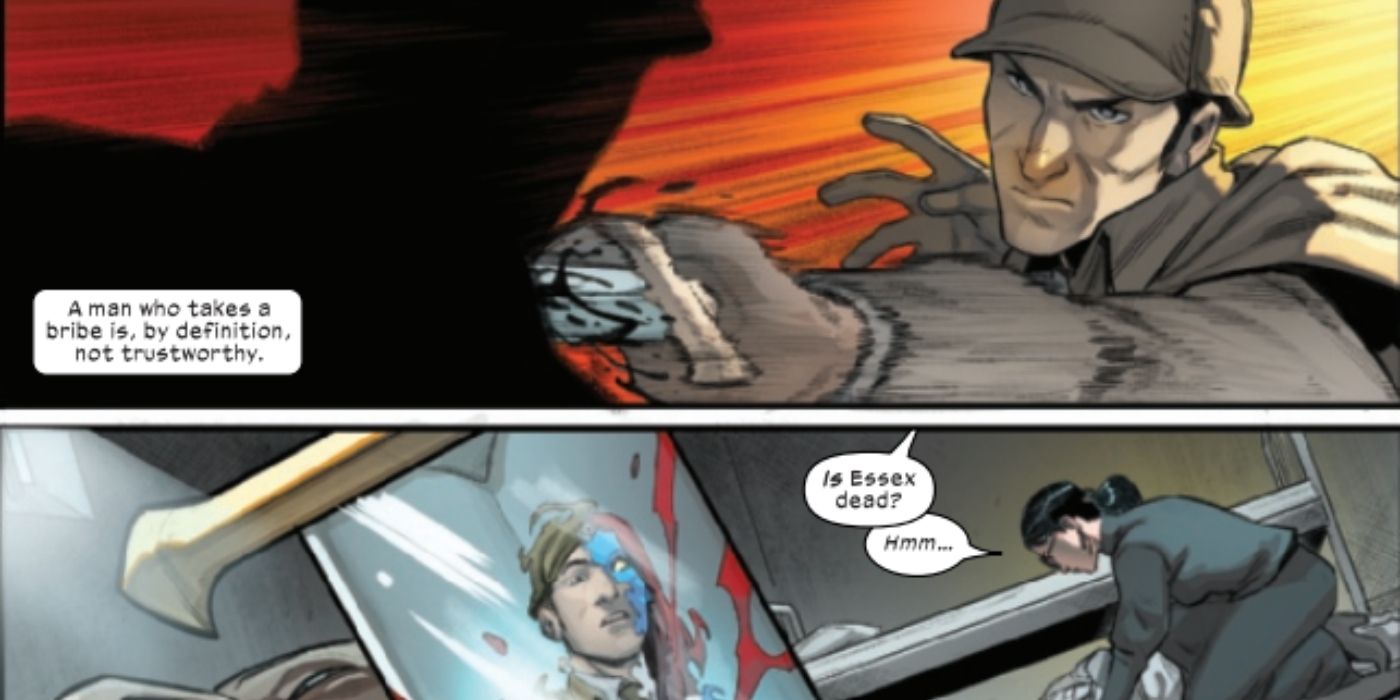The following contains spoilers for Immortal X-Men #8, now on sale from Marvel Comics.
The history of the Marvel Universe is always changing and evolving to accommodate new ideas -- with concepts like ancient Avengers and secret mutants playing into the origins of the entire world. Sometimes, even the entire world is built upon the foundations of mutants -- including culturally, with one notable mutant secretly serving as the Marvel Universe's version of a classic literary hero.
Mystique and Destiny's place during the late 19th century is further illuminated in Immortal X-Men #8 (by Kieron Gillen, Michele Bandini, David Curiel, and VC's Clayton Cowles). This includes the revelation that one of Mystique's best disguises in that era is better known to the world as Sherlock Holmes.
Mystique is Marvel's Sherlock Holmes
Immortal X-Men #8 is split across two time periods and focuses heavily on Mystique and Destiny's early interactions with the villainous Mister Sinister. By the late 19th century, the couple had relocated to London and were living a comfortable life. Mystique had even found consistent work as a detective -- using her powers to morph into the visage of a man, to better put at ease the often stuffy male patrons calling on her assistance. The identity involves a brown cape and deerstalker, and her office is located at 221B Baker Street. While it's never formally named in the issue, this identity was clearly modeled after Sherlock Holmes -- suggesting Mystique was actually the Marvel Universe version of the literary world's most iconic detective.
The issue shows Mystique's reasoning for using the disguise, as her identity as just another man of wit allows her to speak to Nathan Essex freely -- as opposed to the dismissive and misogynistic attitude he displays towards Destiny. It also means that Mystique is able to lure officers into a false sense of security, trusting the helpful detective completely (and leaving themselves exposed to a knife to the throat when the shapeshifter believes them to be a possible complication). While the DC Universe has featured Sherlock Holmes as an in-universe character and Deadpool has met the literary concept, the suggestion that Mystique is the Marvel Universe's Sherlock works on a lot of levels.
Marvel's Mutants Have Long Been Linked to Pop Culture
Mutants have long been a part of the Marvel Universe, even having unseen connections to various unexpected corners of the world. Mystique's place in London fleshes out her and Destiny's history a bit -- and even allows Destiny to take on her own literary role, effectively becoming Marvel's Watson. She even had her own collection of diaries to match the journals Watson kept in the original Sherlock Holmes stories. It allows a character in the present day to be aware of the machinations of Mister Sinister in the past, setting up Destiny and Mystique's role in storylines like the upcoming Sins of Sinister.
Sherlock Holmes being a mutant is a wild development -- especially as it technically makes Mystique one of the most famous mutants ever. The sheer number of adaptations and reinventions of Sherlock Holmes makes him one of fiction's most famous characters, and it turns out he was a mutant all along. It's also not the first time that a character or person not usually associated with the Marvel Universe has been retconned into a mutant, as other figures from across the world of art and history have been teased to also be mutants beyond just Sherlock.
X-Men '92: House of XCII #4 (by Steve Foxe, Salva Espin, Israel Silva, and Joe Sabino) hinted that the musician Prince was a mutant -- and Doctor Doom spends X-Men: Hellfire Gala #1 (by Gerry Duggan, Kris Anka, Russell Dauterman, Matteo Lolli, C.F. Villa and VC's Cory Petit) wondering if David Bowie was also a mutant. Exodus has even suggested in Immortal X-Men #1 (by Kieron Gillen, Lucas Weneck, David Curiel, and Clayton Cowles) Jesus Christ might have been a mutant. Sherlock Holmes is just the latest example of history and culture being quietly connected to mutants, tying in one of the world's most famous literary creations to the secret history of the X-Men.



